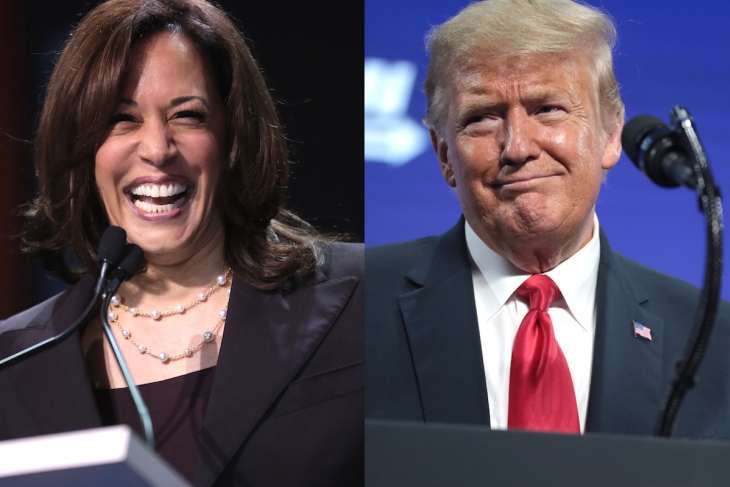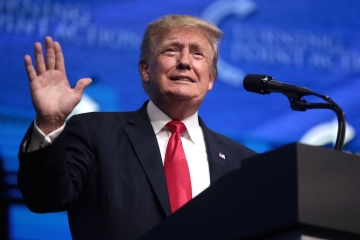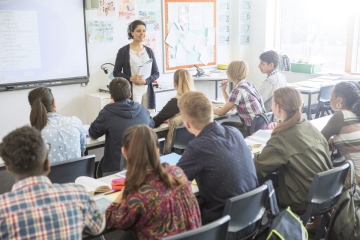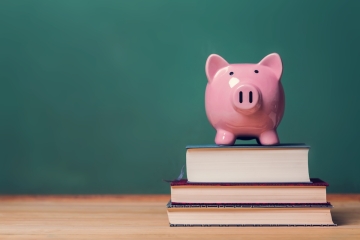During the fateful presidential debate between Joe Biden and Donald Trump, there was nary a mention of education. No questions on the topic from the moderators. No acknowledgement of student achievement by either candidate. This despite historic declines in academic performance post-pandemic, to say nothing of the missed opportunity of calling Democrats to the mat for the toll of prolonged school closures. Granted, education has never featured prominently in these exchanges, but the goose egg in June was deflating nonetheless, given the daunting challenges schools are grappling with. But now that Kamala Harris has turned the campaign upside down, will the September 10 face-to-face between the Vice President and the former President be any different on the education scoreboard?
Some history is instructive here, insofar as education matters go in presidential debates. Twenty-four years ago, then Texas Governor George W. Bush and Democratic incumbent Vice President Al Gore arguably set the high-water mark. For a remarkable nine-minutes during the first of three debates, Bush and Gore went toe-to-toe on who offered the better vision for improving America’s schools. Foreshadowing NCLB, here’s how Bush said he planned to focus on high expectations and strong accountability:
Here is the role of the federal government. One is to change Head Start into a reading program. Two is to say if you want to access reading money, you can do so because the goal is for every single child to learn to read. There must be K–2 diagnostic tools, teacher training money available. Three, we’ve got to consolidate federal programs to free districts and free the schools to encourage innovators like [KIPP]. Let them reach out beyond the confines of the current structure to recruit [Teach For America] type teachers. Four, we’re going to say if you receive federal money, measure third, fourth, fifth, sixth, seventh, and eighth grade. Show us whether they are learning to read, write, add, and subtract, and if so, there will be bonus plans. But if not, instead of continuing to subsidize failure, the [federal] money will go to…the parents for public school or charter school or tutorial or Catholic school.
Gore responded that he agreed with Bush on the need for strong accountability, leaving moderator Jim Lehrer confused about the difference between the two candidates. In answer, Bush accused Gore of being weak-kneed on accountability, saying that the Vice President’s plan only called for voluntary testing. Not to be outdone, Gore shot back:
First of all, I do have mandatory testing. [My plan for] voluntary national testing is in addition to the mandatory testing that we require of states. All schools, all school districts, students themselves, and required teacher testing, which goes a step farther than Governor Bush has been willing to go... We have to make [schools] the number one priority... If it’s a failing school, shut it down and reopen it under a new principal with a turnaround team of specialists the way Governor Jim Hunt does in North Carolina…
This back-and-forth between Bush and Gore stands in stark and striking contrast to what's currently on offer on the presidential stage. Today, the notion of a presidential nominee from either of the major parties advocating an unapologetic focus on the progress of disadvantaged students feels both far-fetched and far beyond the realm of possibility.
Which brings us back to next month’s showdown between Harris and Trump. While one can always hope the former will tack to the center—as she has begun to do on some issues—it’s hard to see Harris making a similar move on education. Like Biden, there’s been no daylight for many years between her and the teachers unions. That bond was cemented when Harris tapped Tim Walz as her partner. Indeed, Minnesota’s governor once tried to put the kibosh on Bush’s NCLB himself. For his part, Trump is a one-trick culture war pony. He has never shown an interest in policy, education or otherwise. Some say his running mate could bode well for rural schools, but there’s little reason for optimism when it comes to the project of standards-based reform should Trump return to the White House.
Taken together, what this suggests is that K–12 education will continue to be missing in action during September’s debate—as it basically is from both party platforms. If it does make an appearance (in a non-culture-war way), it will be a fleeting reference to private school choice on Trump’s part or more spending and less accountability on Harris’s. Despite compelling evidence behind the federal government’s role in improving student learning, national politics will not favor standards, assessments, and consequences anytime soon. From feast to famine, the throughline from the Bush 41-Clinton-Bush 43-Obama era to, at present, Trump-Biden-Harris/Trump is that we’re mired in the throes of a twelve-year cycle—perhaps an even longer one—absent a robust commitment to educational improvement from Uncle Sam.




